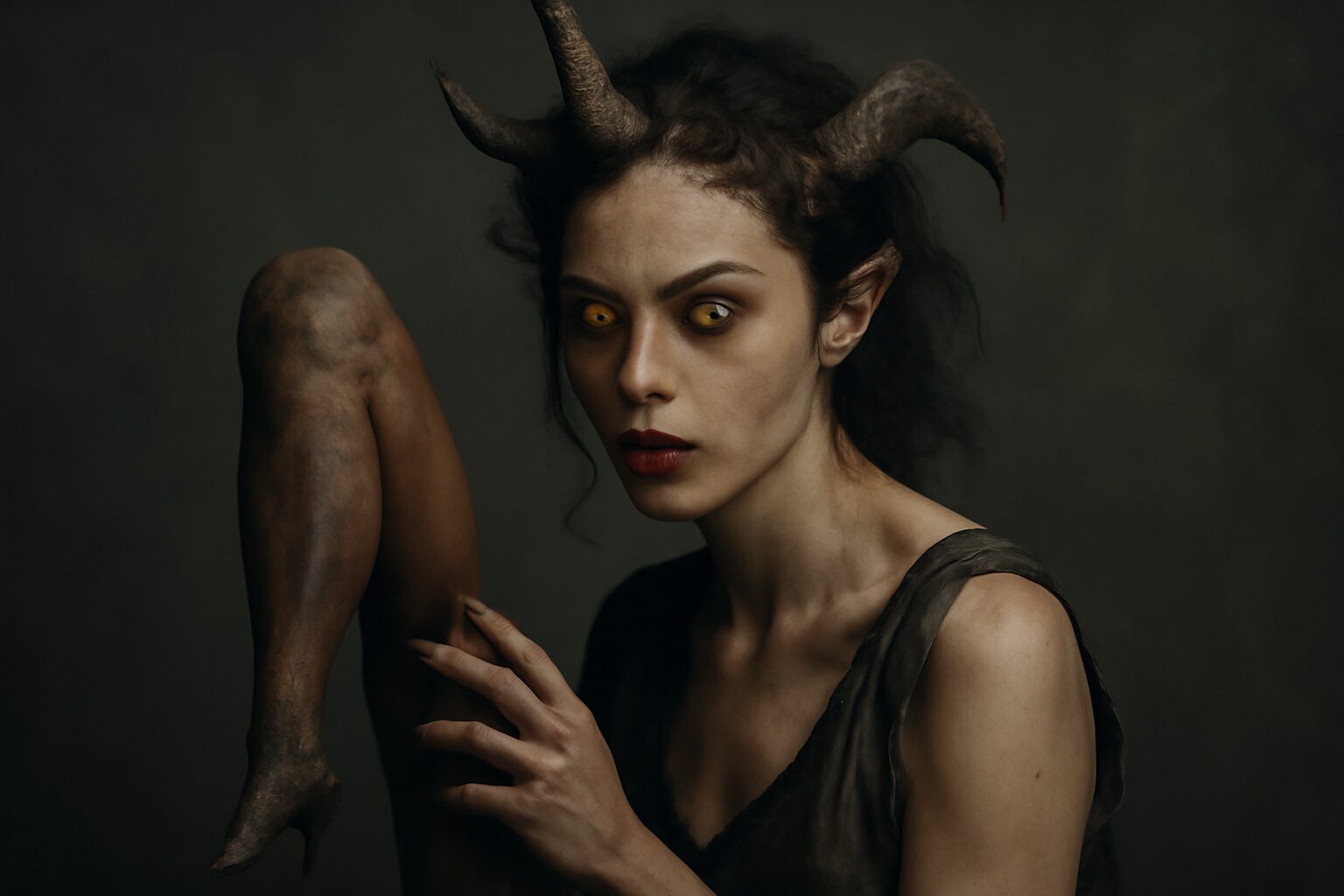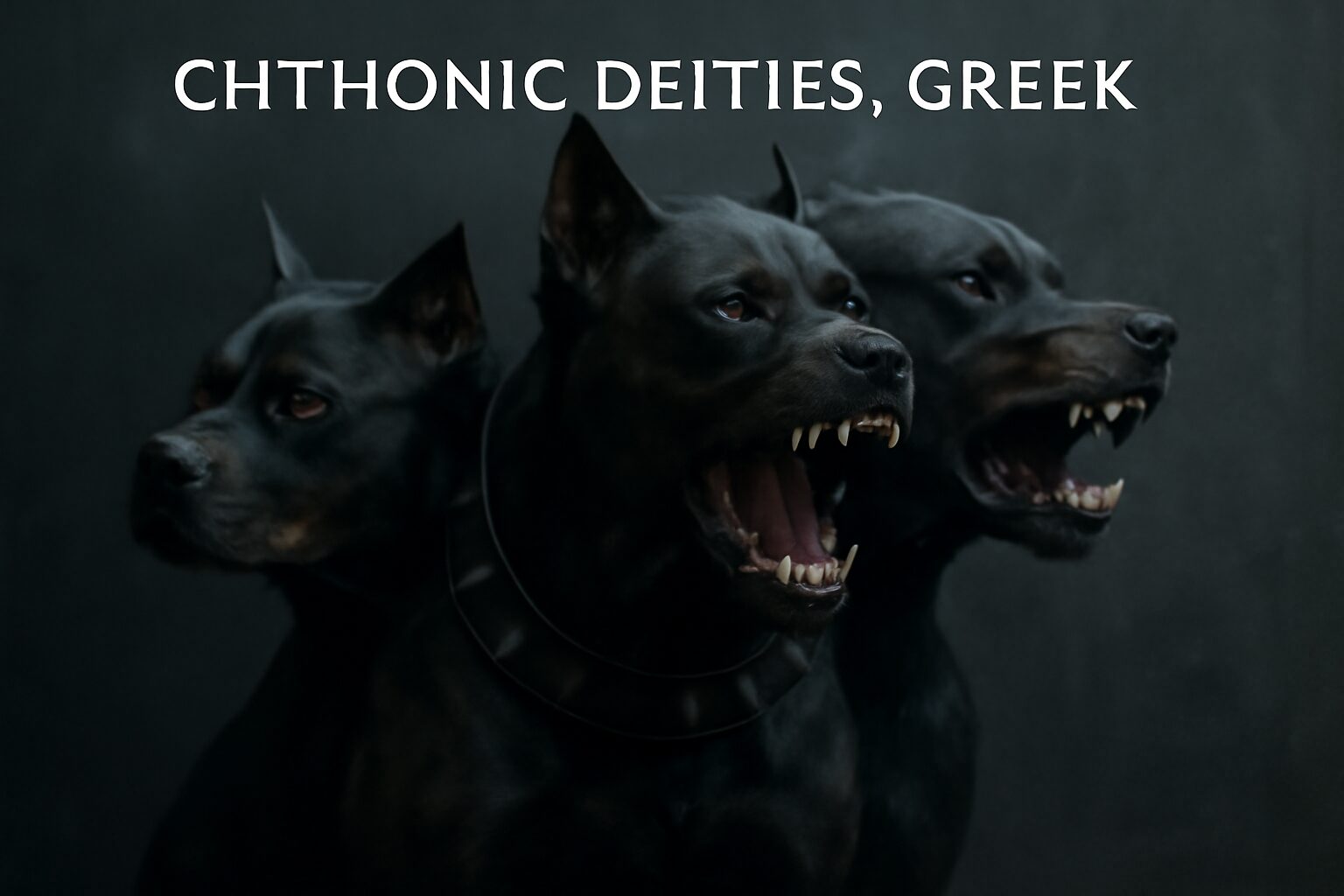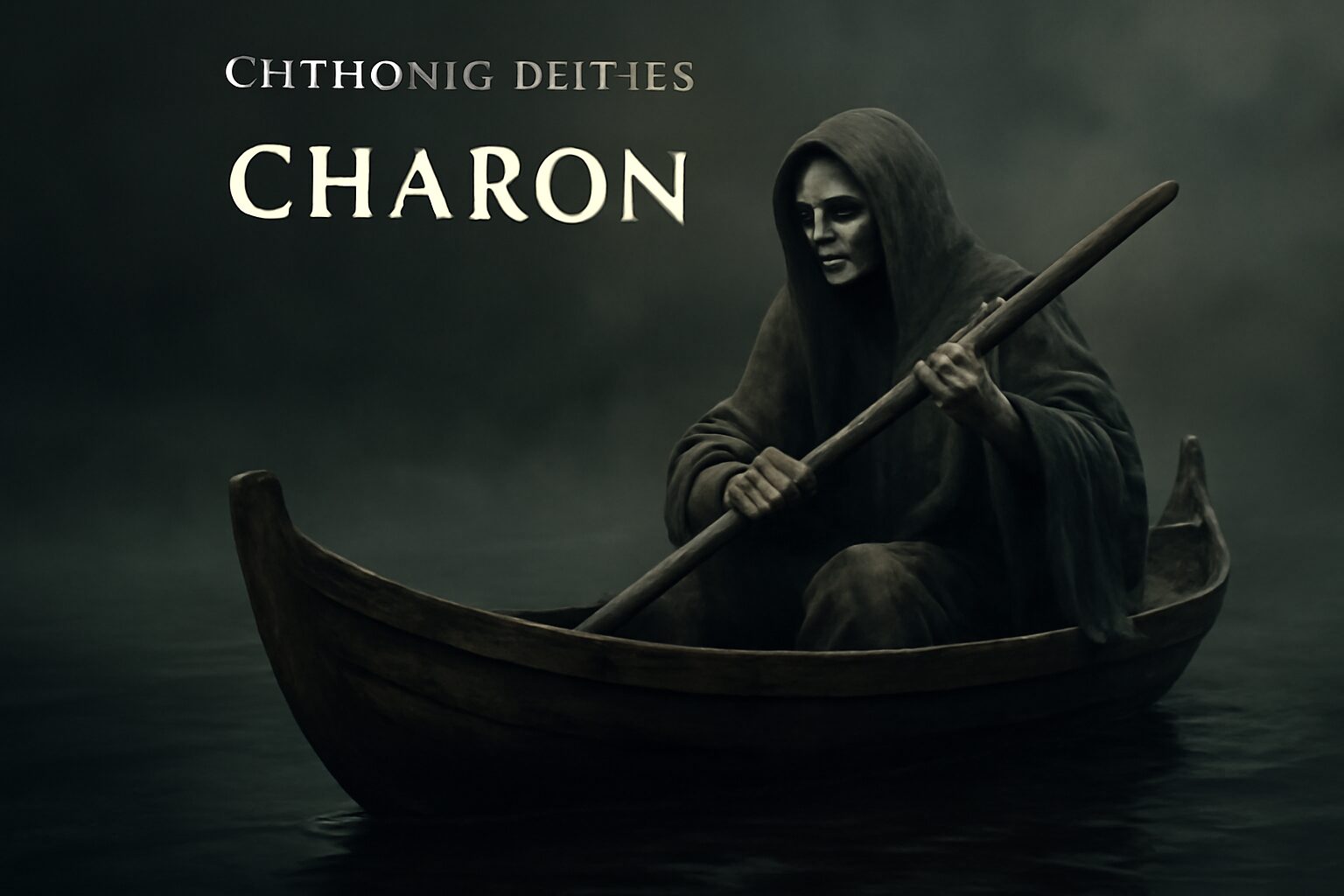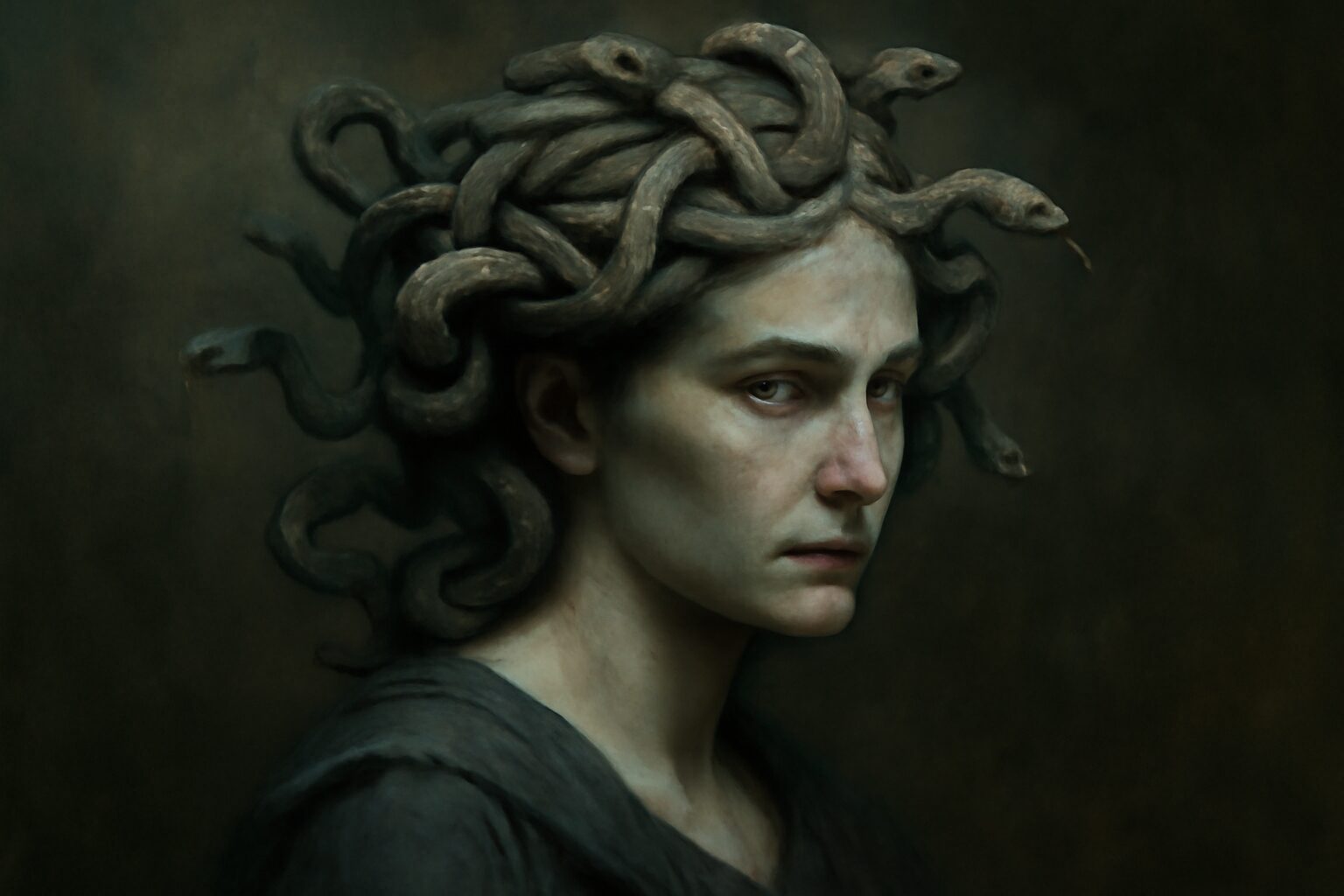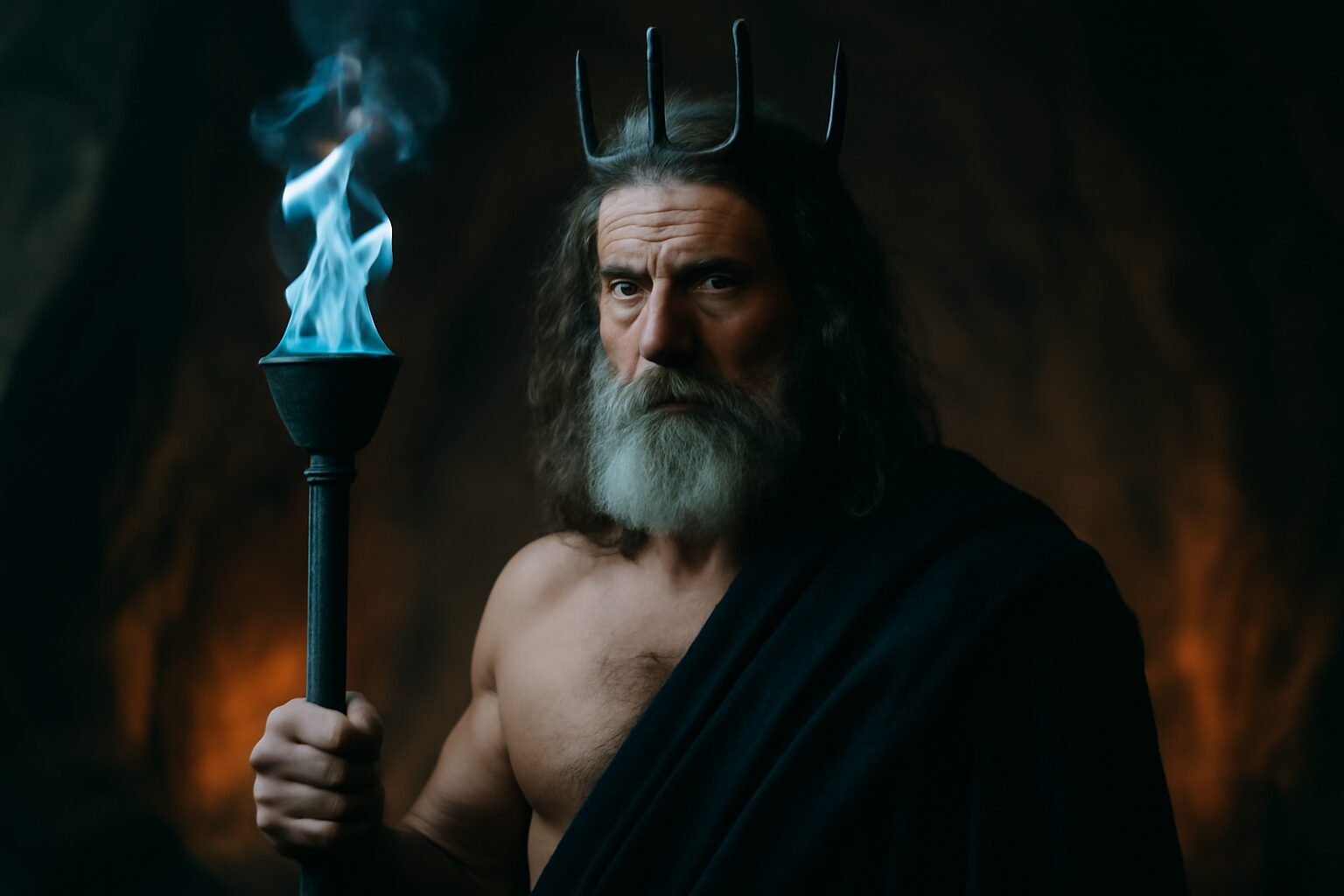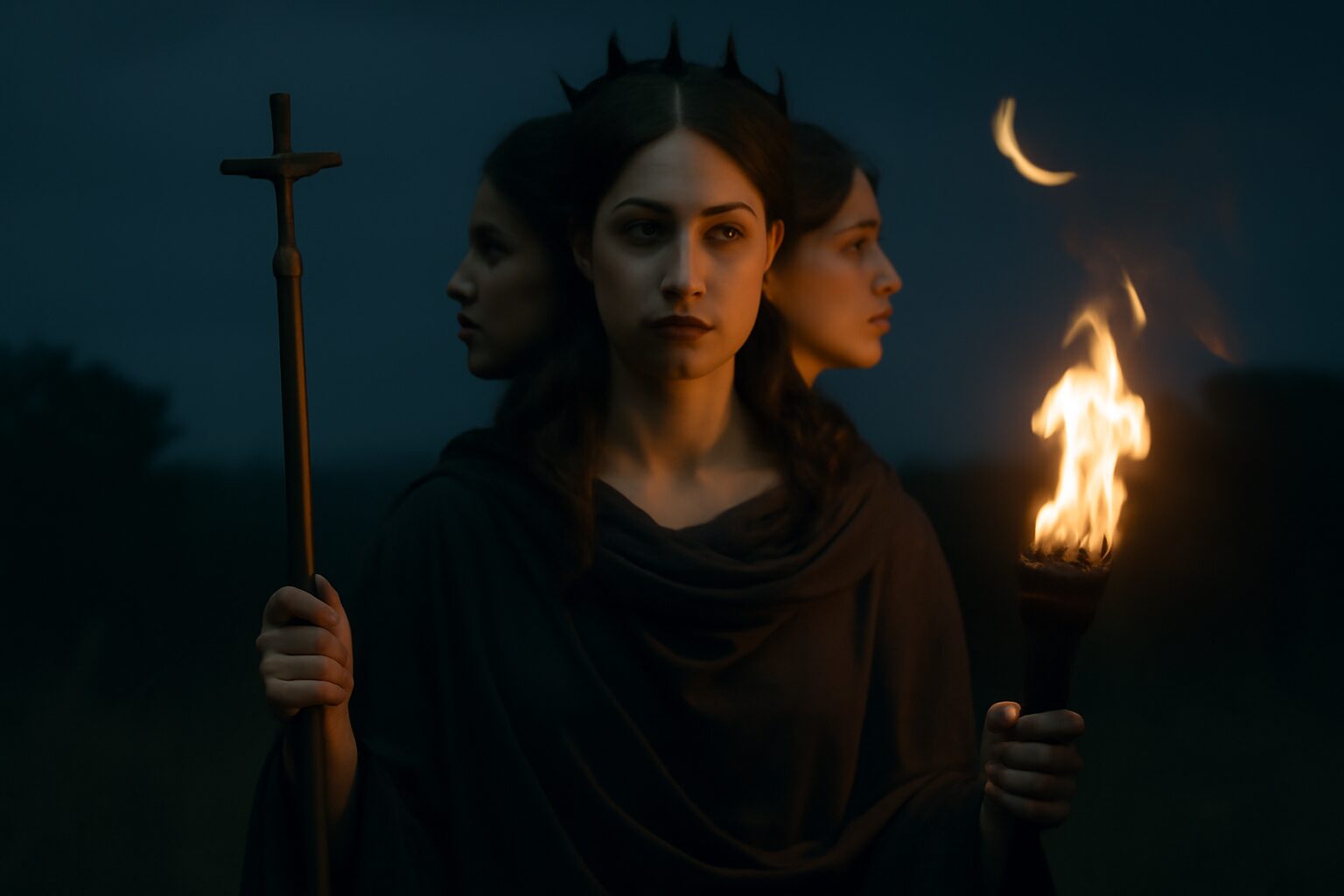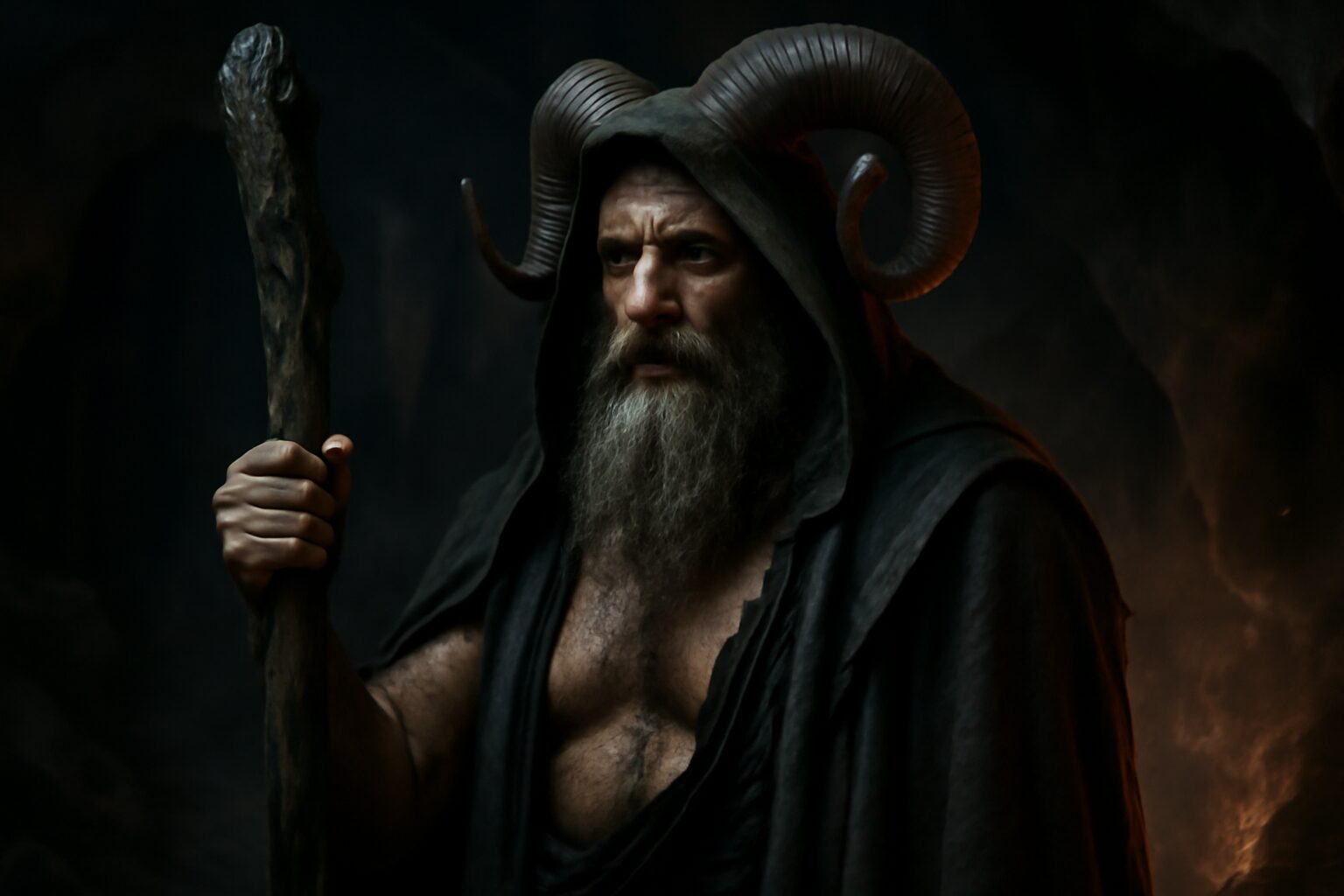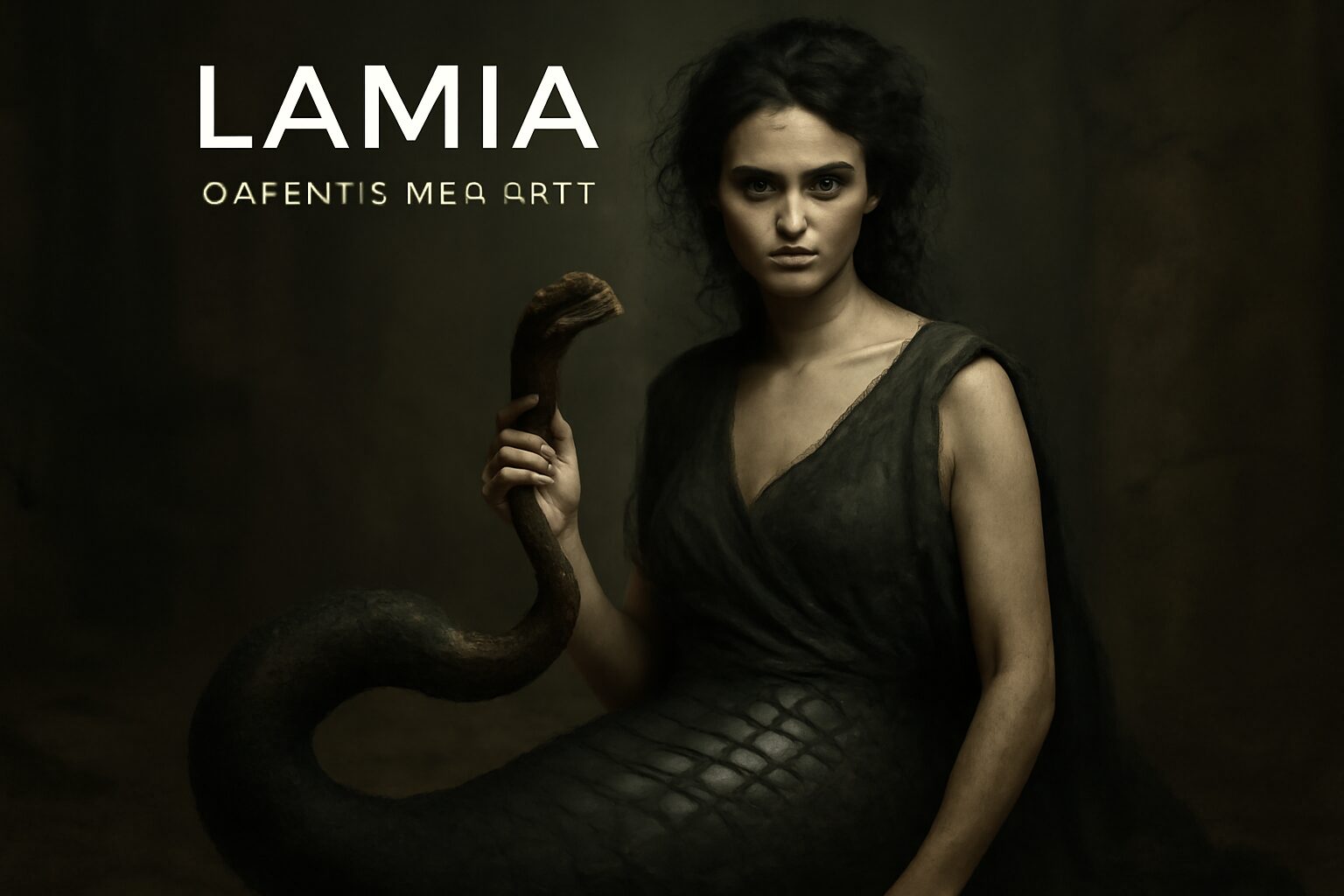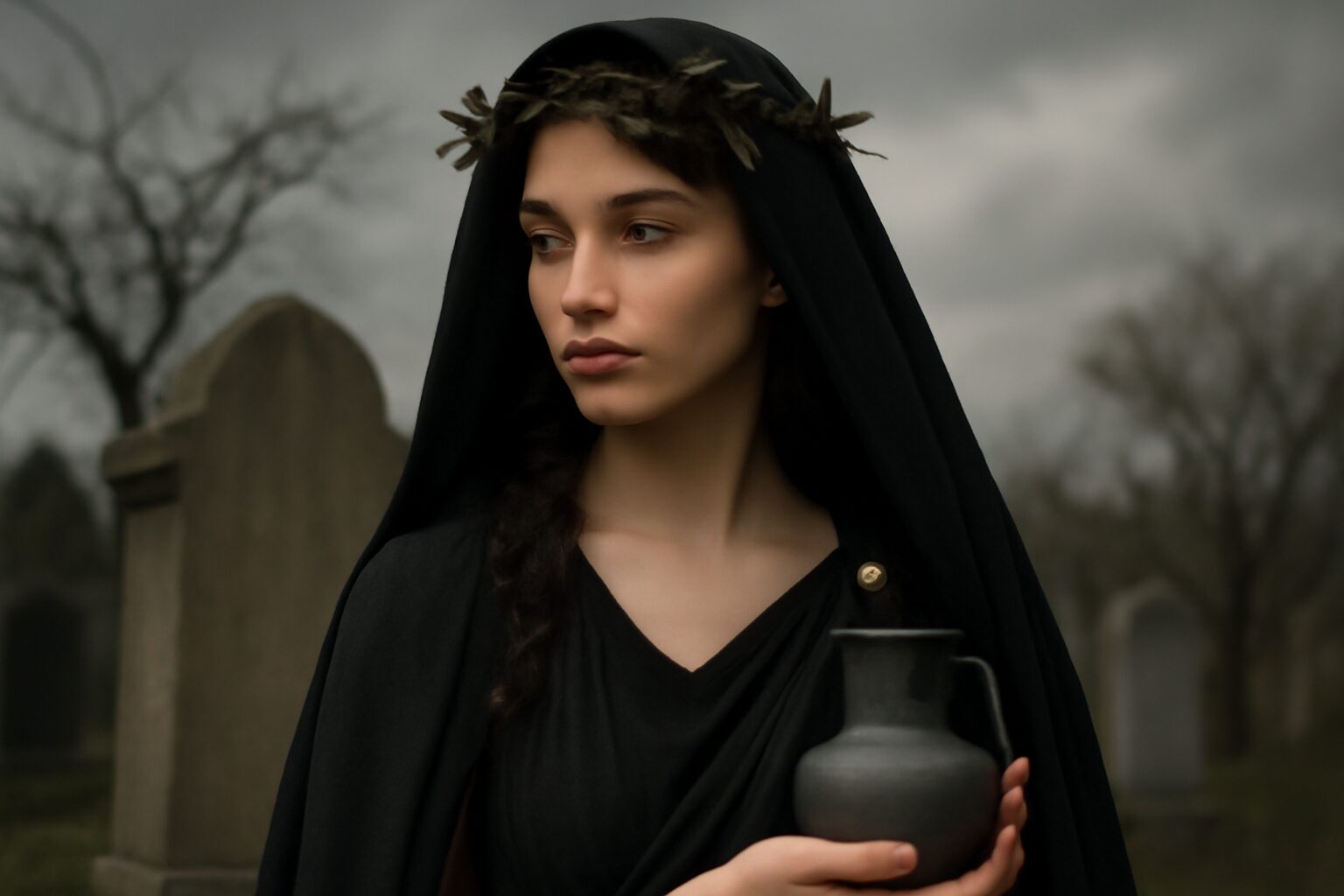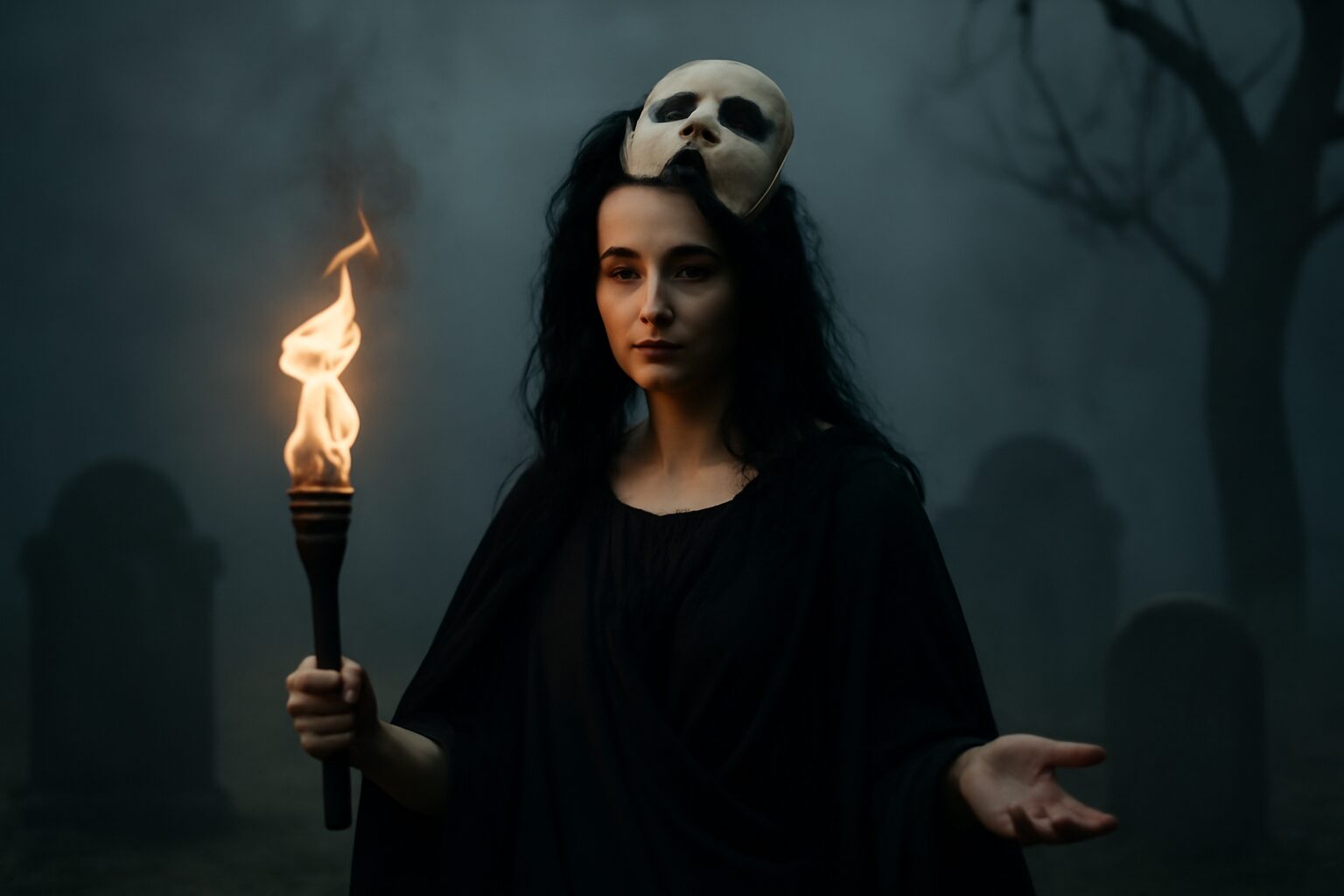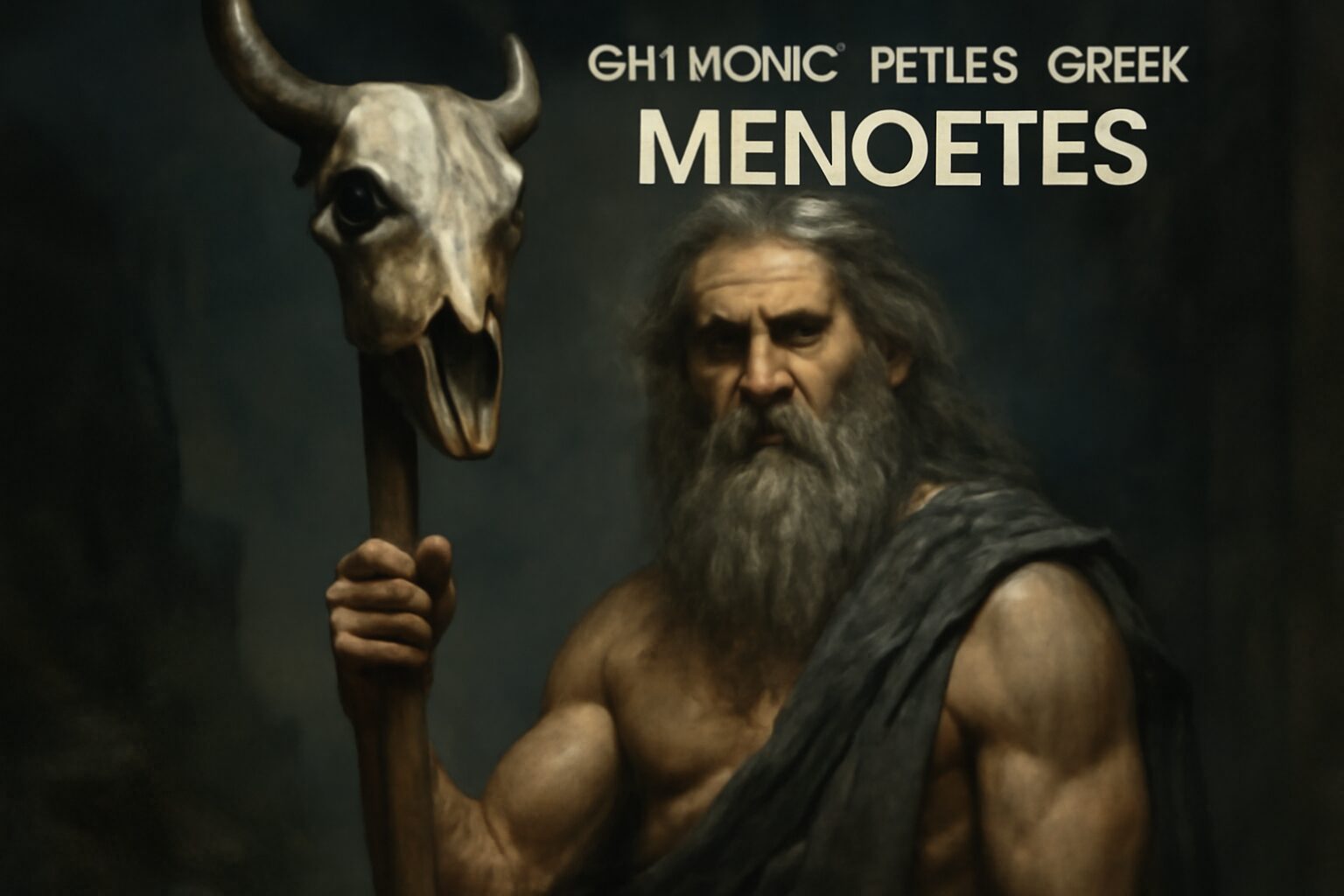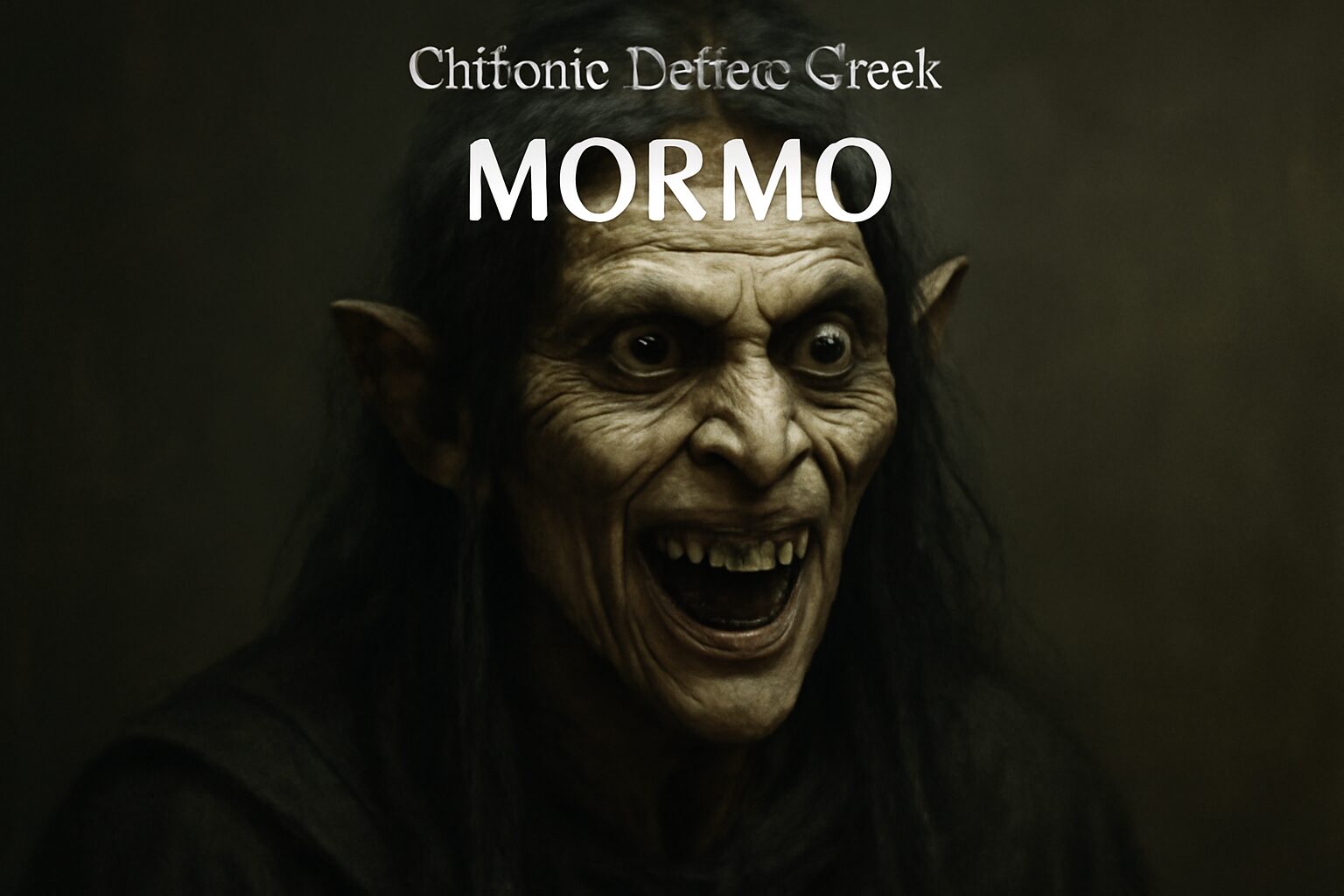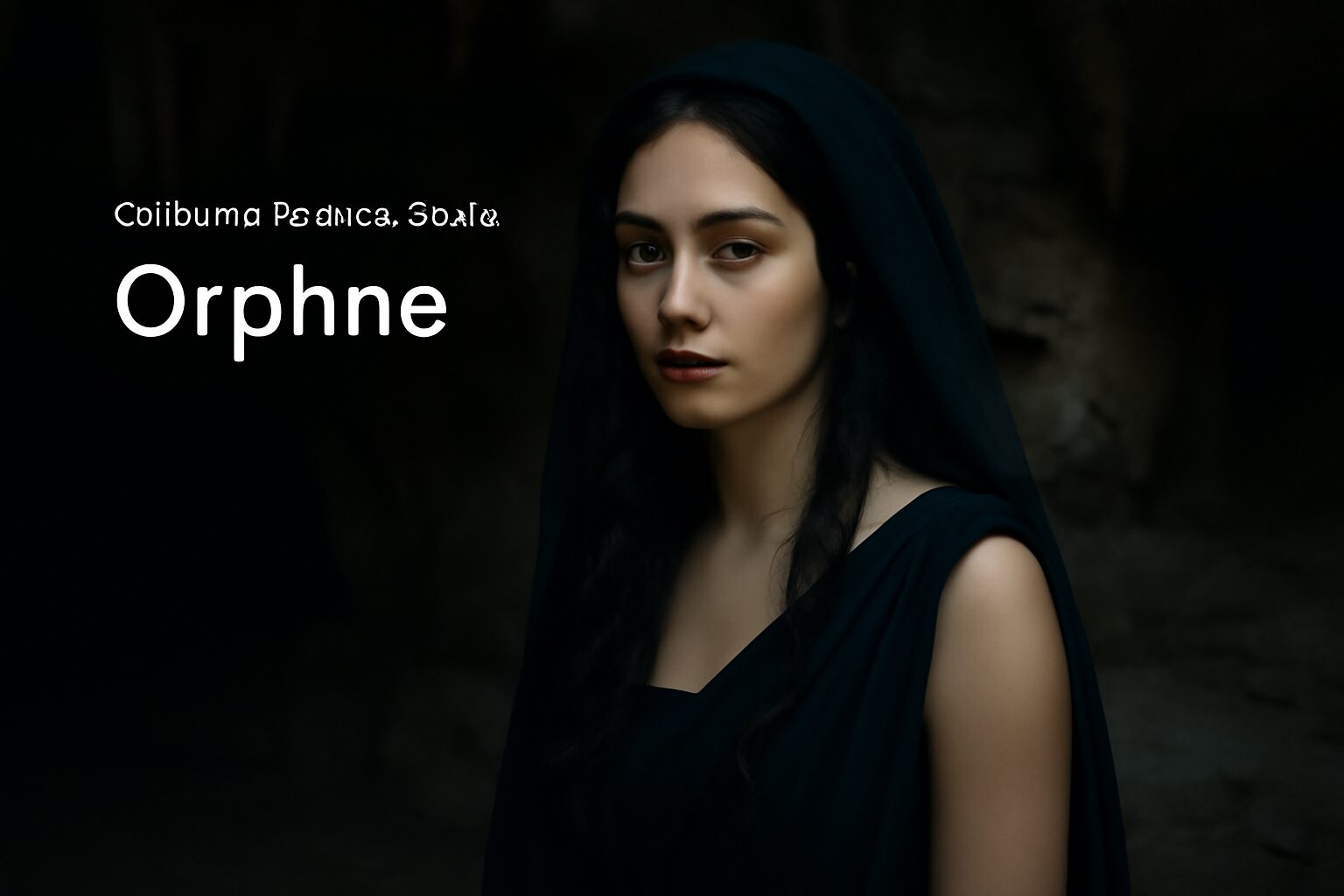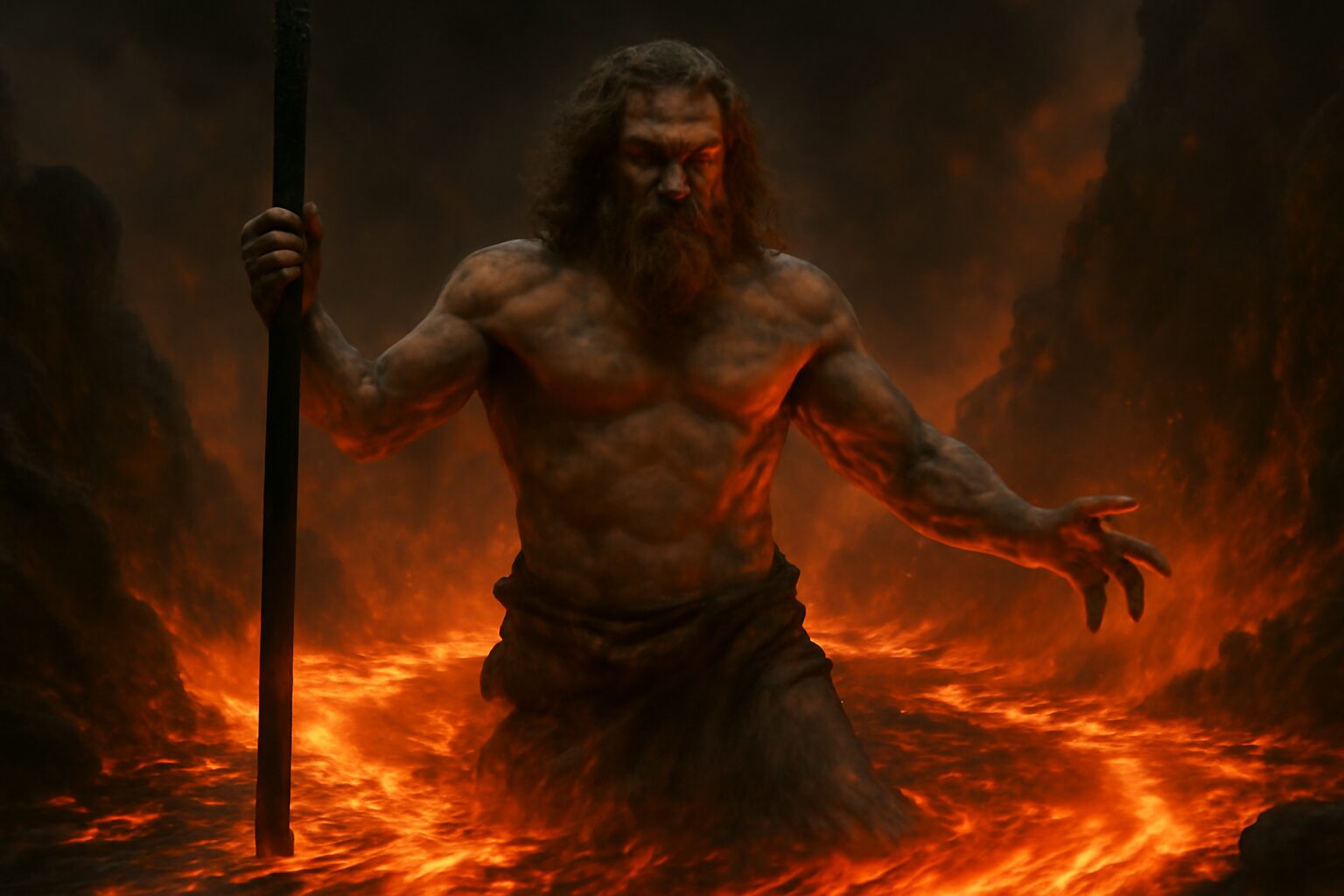Empusa: The Shape-Shifting Demon of Greek Mythology
In Greek mythology, Empusa was a fearsome female demon associated with Hecate, the goddess of witchcraft and the underworld. Often depicted as a monstrous being with one leg of brass and the other of a donkey, Empusa was known for her ability to shape-shift, typically appearing as a beautiful woman to lure unsuspecting victims—usually young men—before revealing her true, terrifying form.
Powers and Abilities
Empusa possessed a range of supernatural powers, making her a formidable figure in Greek folklore. Her most notable ability was shape-shifting, which she used to deceive travelers. She could also manipulate fire, often appearing with flaming hair or surrounded by eerie lights. Some myths describe her as a vampiric creature who fed on the blood or flesh of her victims, draining their life force.
Empusa was also said to be a servant or even a daughter of Hecate, linking her to the darker aspects of magic and the supernatural. Her presence was often considered an omen of misfortune or death, and she was believed to haunt crossroads—a sacred space associated with Hecate.
Mythology and Legends
One of the most famous encounters with Empusa comes from Aristophanes' comedy "The Frogs," where the god Dionysus and his slave Xanthias meet her on their journey to the underworld. Terrified by her monstrous appearance, they attempt to ward her off with insults and garlic—a common folkloric method of repelling evil spirits.
In other tales, Empusa was said to prey on lone travelers at night, seducing them with her beauty before attacking. Some legends suggest that she could be driven away by loud noises or by invoking the name of a powerful deity, such as Apollo or Artemis.
Significance in Greek Mythology
Empusa represents the dangers lurking in the unknown, embodying the fears of ancient Greeks about the supernatural and the deceptive nature of appearances. As a creature of the night, she symbolizes the blurred line between beauty and horror, a common theme in Greek myths.
Her connection to Hecate also highlights her role as a guardian of thresholds—both physical and metaphysical. Empusa served as a reminder of the perils of straying from the path, both literally and morally, reinforcing the cultural importance of vigilance and piety.
Alternative Names for Empusa
God Name: Empousa (Greek)
An alternative spelling of Empusa, often used in ancient Greek texts to refer to the same shape-shifting female demon or spirit associated with Hecate.
God Name: Lamia (Roman)
In Roman mythology, Lamia is sometimes conflated with Empusa. Both are depicted as vampiric, child-killing demons or spirits, though Lamia has a distinct origin story in Greek mythology as a queen transformed into a monster.
God Name: Onoskelis (Greek)
A name sometimes associated with Empusa in Greek folklore, referring to a demon with donkey legs, highlighting her monstrous and hybrid nature.
God Name: Mormo (Greek)
Another name linked to Empusa in Greek mythology, often used to describe a female spirit or bogeyman that frightens children, sharing similar traits with Empusa.
Tales about Empusa
Empusa and Hecate: The Guardian of Crossroads
In the shadowy realms of the underworld, Hecate, the goddess of magic and crossroads, held dominion over spirits and phantoms. Among her retinue was Empusa, a shape-shifting daimona known for her terrifying appearances and deceptive nature. Hecate, in her wisdom, often dispatched Empusa to guard sacred sites and test the courage of mortals who wandered too close to the boundaries between worlds.
The Test of the Traveler
One moonless night, a weary traveler named Lycus found himself at a lonely crossroads, unsure of which path to take. As he hesitated, a beautiful woman emerged from the darkness, her form bathed in an eerie glow. It was Empusa, sent by Hecate to challenge him. She offered guidance with a sweet voice, but her intentions were sinister. Lycus, though tempted, remembered the tales of spirits that lured men to their doom and refused her aid. Impressed by his resolve, Empusa revealed her true form—a monstrous being with bronze legs and fiery eyes—before vanishing into the night. Hecate, observing from afar, smiled, for Lycus had proven worthy of safe passage.
Empusa and Hades: A Servant in the Underworld
Deep within the kingdom of Hades, lord of the dead, spirits and monsters served to maintain order among the shades. Empusa, with her ability to instill fear and confusion, was occasionally summoned by Hades to deal with particularly troublesome souls or to patrol the darker corners of his domain.
The Unruly Shade
When a defiant shade named Theron began causing chaos in the Fields of Asphodel, refusing to accept his fate and disturbing the peace of other souls, Hades called upon Empusa. Disguised as a comforting presence, she approached Theron, offering sympathy and a way to escape. As he followed her, she led him through twisting paths filled with illusions of his past regrets, each more harrowing than the last. Finally, at the edge of the River Styx, she revealed her true nature, and Theron, overwhelmed with terror, submitted to his eternal rest. Hades, pleased with her effectiveness, granted Empusa greater freedom to roam the underworld, ensuring that order was kept through fear when necessary.
Frequently Asked Questions
Who is Empusa in Greek mythology?
Empusa is a shape-shifting female demon or spirit in Greek mythology, often associated with Hecate, the goddess of witchcraft. She was known for seducing and preying on young men, sometimes by transforming into a beautiful woman or a monstrous creature.
What are Chthonic deities in Greek mythology?
Chthonic deities are gods or spirits associated with the underworld, earth, and the afterlife in Greek mythology. They include figures like Hades, Persephone, and Hecate, and were often worshiped with different rituals than the Olympian gods, such as nighttime sacrifices.
Why are Chthonic deities important in Greek mythology?
Chthonic deities were important because they represented the mysteries of death, the afterlife, and the unseen forces of the earth. They played a key role in rituals, funerary practices, and beliefs about the soul's journey after death, offering Greeks a way to understand and cope with mortality.
How does Empusa relate to other Greek mythological creatures?
Empusa is often grouped with other malevolent female spirits like Lamia and the Mormo, who were also feared for their predatory nature. Like them, she embodies ancient Greek fears of the supernatural and the dangers of seduction and deception.
Are Chthonic deities still relevant today?
While not worshiped today, Chthonic deities remain culturally significant as symbols of death, rebirth, and the subconscious. They appear in modern literature, art, and psychology (e.g., Jungian archetypes), reflecting enduring human fascination with the underworld and hidden truths.

